
(03) 8592 8100

7-Step Guide to Getting Your Subdivision NBN-Ready Minus the Hassle
As a developer, there are some essential steps you must take to be sure your properties are NBN-ready on time. Whether your subdivision takes place on a single block, or involves multiple properties in a new estate, getting these NBN requirements ticked off early is a smart move.
However, there is quite a bit involved, and for many developers, the planning, execution and compliance around telecommunications in new developments is a bit confusing. From the initial application through to design, construction and finally compliance, it can be hard to know where to start. But when you break it down into manageable steps and get the right help you can get it done on time, on budget and with zero stress.
So, to help you get a handle on how to get your subdivision NBN-ready, in this article we take you through the 7 essential steps that will get you from start to finish minus the confusion and hassle.
Step 1) Get the right help
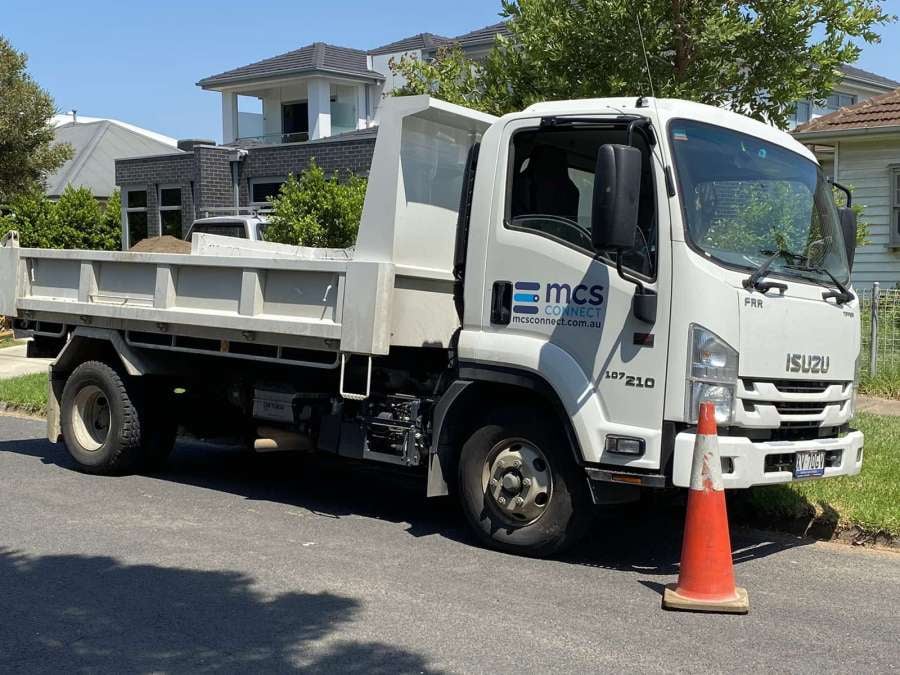
If you’re looking to simplify the entire process, engaging a telecommunications contractor at the very start is a good move. Depending on the size of the development you are looking at a minimum of three to six months for approvals from nbnco alone, so make sure you allow enough time for everything to happen. As an experienced contractor, we can give you an indication of the timings around each step, so you can plan effectively to avoid delays. We’ll also provide a quote that details exactly what we can complete for you, and include a guarantee that our works will be compliant. This is important, as it means you can be sure you won’t be out of pocket if something does not meet nbnco’s strict compliance guidelines. In addition, we’ll let you know of any tasks you need to complete yourself, and when they need to be done, so the project is always moving forward.
Step 2) Decide on the level of service
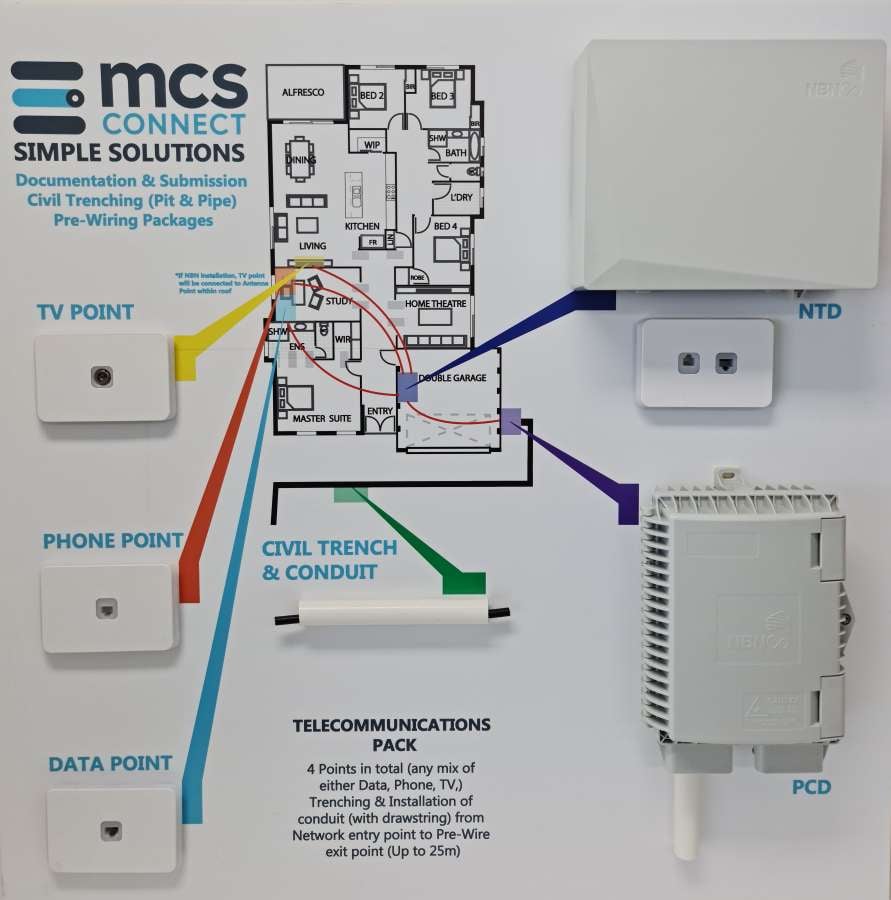
Once you’ve reviewed our quote, it’s time to decide on the level of service. For example, our quotes include telecommunications installations (AutoCAD plans, pit and pipe construction, streetworks—where applicable), compliance documentation (VC81 council compliance documentation/ Forms 1 & 2) and in-home wiring (pathway designs, installation). Depending on your circumstances, we can take care of everything, or you can handpick the aspects you need help with if you have some of the required expertise on your team.
Step 3) Complete plans and submit application
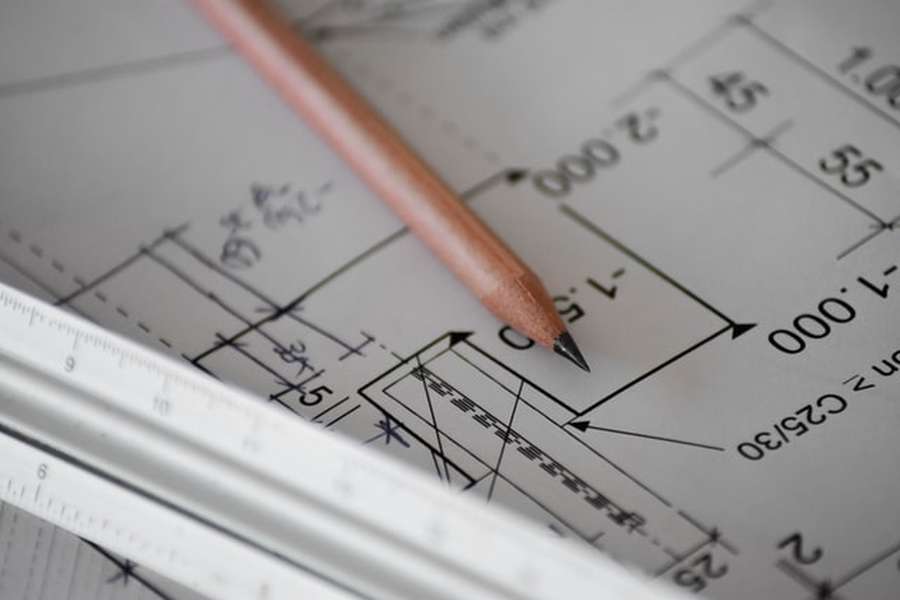
Getting your NBN application off early is a must, with nbnco approvals taking a minimum of three months for small subdivisions with two dwellings, and at least six months for anything larger. But before completing the application online, we will need to have the correct plans in the right format. Depending on the size and scope of your development, this could be an AutoCAD, basic PDF telecommunications plan, NBN pathway or all of the above. We can advise which format is needed for submission and will complete this aspect for you to ensure minimum hiccups.
Step 4) Accept terms and pay fee

Once we’ve submitted the application, nbnco will review and provide you with terms, estimated timings and charges that need to be paid. To confirm the application and proceed, you (the developer) must accept the legally binding terms and pay the charges. The developer contribution charge is applied as part of the Government policy to recover the costs of deploying the nbn access network infrastructure. In some cases, other charges from nbnco may also apply.
Step 5) Construct the infrastructure
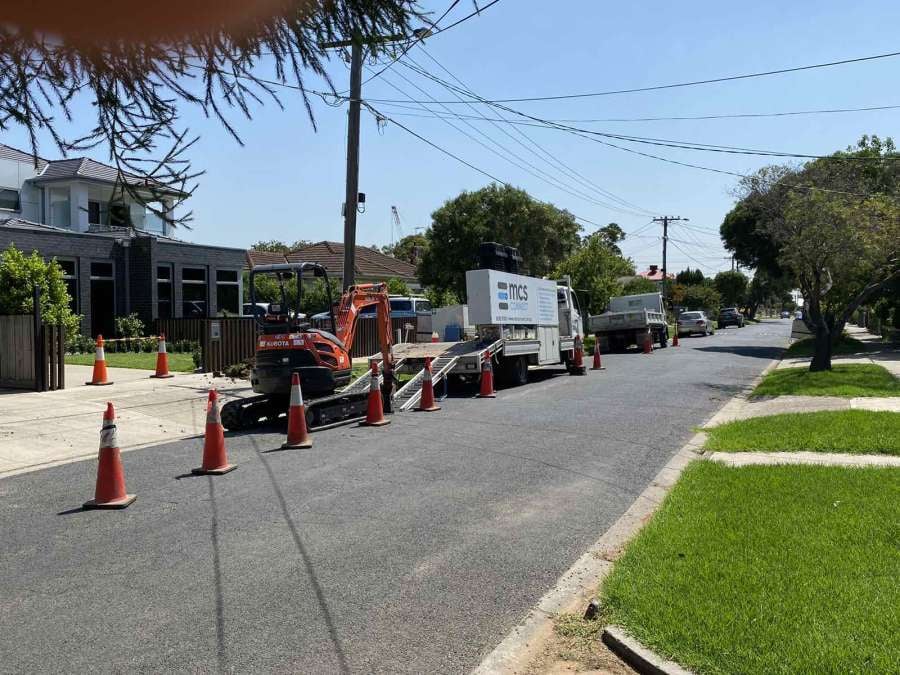
Once your NBN application is confirmed, you can arrange for the construction of your infrastructure which will generally require underground installation via pit and pipe construction. It’s essential the construction of your infrastructure is completed to the exact specifications on your approved plans. For this reason, many developers opt to have this completed by a specialised telecommunications team. If the works are not completed at the required standard, they will need to be rectified which can add significant cost and time to your project.
Step 6) Inspection for compliance
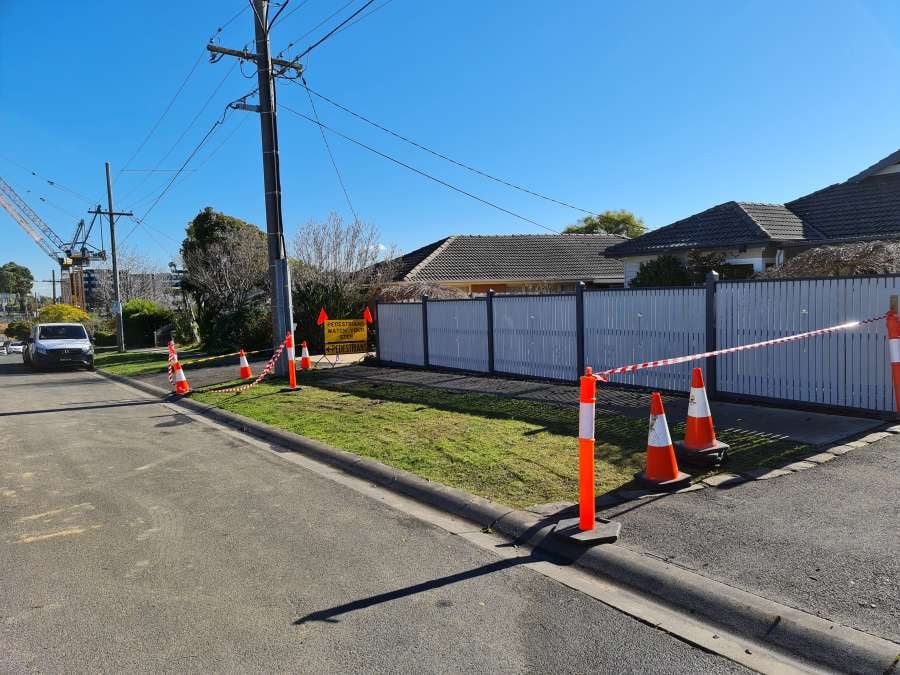
Achieving compliance for your telecommunications involves a couple of steps, and it can vary depending on your unique circumstances. In most cases, nbnco will undertake an inspection of your infrastructure to make sure it has been built to standard. If everything is approved, they will then issue you with a Certificate of Practical Completion so you can take the next step.
Step 7) Certificate of occupancy issued

In Victoria, you will need to obtain VC81 council compliance documentation (also known as Forms 1 & 2) to receive the certificate of occupancy that allows the premises to be occupied. Obtaining the documentation is complicated and it can only be issued by a qualified telecommunications contractor or company which is why outsourcing the entire process is highly recommended. Once you have achieved VC81 compliance, your development is NBN-ready and you can now apply for your certificate of occupancy in preparation for project completion and handover of the keys.
Get the right help from the start
When it comes to getting your development NBN-ready, breaking it down into manageable steps makes it less stressful. But to really streamline the process and tick those boxes sooner, be sure to get expert help right from the start.
To find out how we can help, contact our team on 03 8592 8100 or submit an online quote anytime and we’ll get back to you soon.
